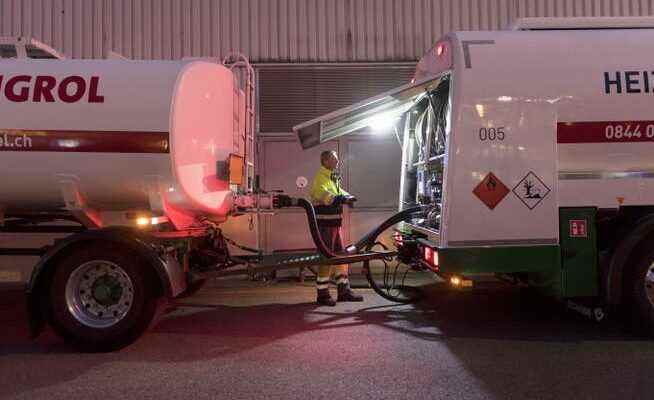Ironically, those parties that proclaim the climate crisis at every opportunity want to artificially cheapen fossil fuels.
Heating oil is harmful to the climate. Nevertheless, it should be cheaper in the city of Zurich.
Actually, the parties of the Zurich “Climate Alliance” should be cheering: Fossil fuels are currently so expensive that every liter hurts your wallet.
Anyone who had their heating oil tank filled two years ago paid per 100 liters only around 70 francs. It is currently almost 160 francs, more than twice as much. Natural gas prices have even multiplied.
These increases, which can only partly be explained by the war in Ukraine, send a strong signal to consumers: those who continue to invest in oil and gas are paying a high price. Switching is worth it. What Swiss environmental policy has been trying to do for years with incentive taxes, the market and an embargo against Russia have achieved within weeks.
However, in this phase, which is actually in line with their goals, the city of Zurich’s Left and Greens have thrown their credibility on climate issues overboard. You supported a call in parliament for the city to make fossil fuels cheaper.
The energy prices are so high that low-income households should receive a contribution from the state treasury to the heating costs. A corresponding postulate of the AL found a majority in the city of Zurich’s parliament.
The city government, which wants to make Zurich climate-neutral by 2040 at any price, will now draw up a proposal on how two substances that are largely responsible for climate change can be sold at lower prices. About every fifth household could benefit from the allowance because they are considered needy in the eyes of the left – such as all those who receive a premium reduction.
The Zurich Left and Greens are not alone in their call for subsidized, environmentally harmful energy sources. There are also energy price populists elsewhere. The Conservative UK government sends £400 to all households. Under SPD Chancellor Olaf Scholz, Germany has reduced petrol prices so much that even Swiss drivers can now refuel cheaper across the border – previously, fuel tourism went in the opposite direction. France has also reduced petrol prices; the SVP wants to follow suit in Switzerland.
It is remarkable that the same parties who want to intervene in the smallest ramifications of life in the name of climate are not making those affected by high heating bills more accountable. They should receive a subsidy, but not have to make a contribution themselves. Low earners would have no means and no leeway to counter the high energy prices.
That is only true insofar as tenants cannot decide whether an oil heating system is humming in the basement or a heat pump. But they too can save energy: if you turn down the heating by one degree, you pay six percent less.
A slightly cooler apartment is reasonable – even SP Switzerland says so. She calls in a new one Position paper on security of supply exactly this. But of course that doesn’t go down as well with the regular voters as simply cushioning the energy costs with other people’s money.
Ultimately, the gas and heating oil allowance provides a foretaste of the discussions that will come to the country in connection with the energy transition. What if energy prices are not high because of a war or market turmoil, but because of numerous eco-surcharges? In the logic of the Zurich model, the state would then also have to step in and make energy artificially cheaper. However, any steering effect would fizzle out.
And something else is clear: high energy prices are likely to fall again one day. However, once a subsidy has been introduced, it is difficult to get rid of it.
